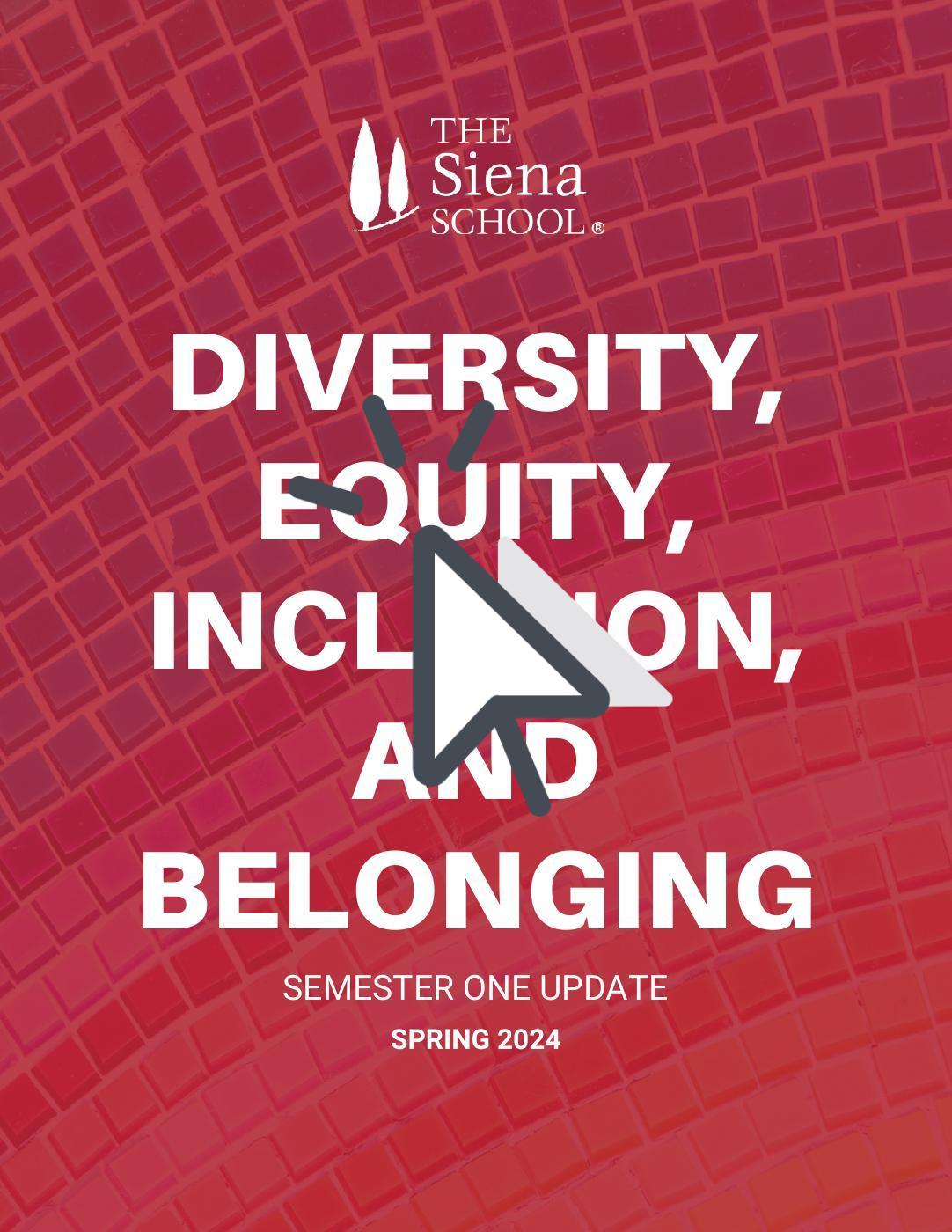Empowering students with language-based learning differences

Siena Blog



The Siena School Blog
Discover, Learn, Celebrate, and Empower
Welcome to Siena's blog, your source for helpful, cutting-edge resources tailored to teachers, parents, and other advocates in the learning differences community. We are dedicated to providing a wealth of curated knowledge spanning various topics, ranging from dyslexia advocacy and awareness to classroom teaching strategies, heritage month profiles, and social and emotional health.
Decision Time: Summer School or Summer Tutoring?

Believe it or not, the school year is fast approaching the halfway point. For some parents, it’s time to start weighing options for the summer. Once summer camps and other traditional activities resume, families may feel students need more individual attention on academics to make up for any gaps in learning this past year.
Finding Appropriate Academic Programs and Local Tutoring Options
Education consultant Ann Dolin has written about parents’ summer anxiety regarding how to find the right amount of academic practice and intellectual rigor over the summer. After almost a year of online learning for many children, parents might not be seeing the typical gains in reading, math, and other skills. “You certainly don’t want a summer where kids aren’t involved in any learning at all, and that’s because they can lose up to two months of progress,” Dolin observed in 2019, “But you don’t want to go overboard, either.”
While summer school may have negative connotations for students, finding the right balance of rigor and relaxation to help parents keep their children learning is key. Summer academic programs and tutoring that adopt both approaches have significant benefits. Continued academic practice and specialized training throughout the summer are especially important for students with language-based learning differences to prevent summer slide regression in reading and writing skills.
The Siena School offers both summer academics and tutoring programs for area students (not just current enrollees) to offer a continuity of education between school years.
Summer Academics for Students with Learning Differences
Siena Silver Spring’s summer academic program provides students in grades 4–9 with a positive instructional experience that works on review, reinforcement, and enhancement of academic skills. Small classes and a nurturing environment provide fun and creative learning opportunities in reading, writing, and math skills and concepts. Students who participate in summer academic courses get the opportunity to experience the school on a smaller scale and ease into the school community. Seeing Siena’s curriculum, faculty, and strategies before the school year starts smooths students’ transition to a new school after they’ve gained comfort in a new learning environment.
Siena’s summer academic program provides the same individualized, multisensory approach practiced throughout the school year in a relaxed but rigorous setting. (See Siena’s academics page for more curriculum information.) Students learn and practice using assistive technologies, specific executive functioning techniques, and writing and reading skills that are applied in each class. It’s been consistently beneficial for our new students to attend summer academic sessions to start creating a community with other students who have similar learning differences.
By first learning new skills, technology, and strategies and then practicing them in class without the added pressure of grades, homework, tests, or quizzes, students can best prepare for the coming school year during the summer. Attending a summer academic session allows students an opportunity to build and practice using a toolkit of skills to carry with them into the fall.
Summer Tutoring for Students with Learning Differences
Another good option to prepare for the new school year is tutoring in specific subjects. Summer tutoring offers consistency of learning, new skill development, one-on-one instruction, and individualized learning—all at a pace structured for the child. Tutoring can give some structure to a student’s summer day and exposes them to healthy learning practices that they can then continue once the school year starts.
Siena Tutors, Siena’s virtual tutoring program, provides students in grades K-12 with a positive instructional experience focused on each individual’s growth in core academic subjects including reading, writing, math, science, and Spanish. We additionally offer tutoring services with a focus on executive functioning, which includes scheduling, prioritizing tasks, managing workloads, organization, and goal setting. See Siena’s tutoring page for more details about our program and tutors.
These individualized virtual tutoring sessions—which can be tailored to their needs—equip students with various skills applicable to both their virtual and traditional schooling. The tutors are educational professionals extensively trained in multisensory instruction and accustomed to individualizing lessons. By using the same multisensory approach that Siena does, these tutors offer students new strategies and tools while delivering important educational continuity.
Summer tutoring sessions can offer students an opportunity to preview next year’s curriculum if they struggle with information processing or executive functioning. This preview will help when a student accesses that curriculum the next school year. One-on-one time with a tutor enables solid review time for students to build on their skills and start a solid foundation for the next school year.
While summer school may sound scary for students, trying the approach of summer academics or summer tutoring might be a great compromise. Offering either option to your child this summer can still give you the desired end results of knowing the learning process will continue through those dreaded summer slide months.
Resources for Students with Learning Differences
- See The Siena School blog for posts about our multisensory and movement-based curriculum, as well as ideas for at-home work and free time over the summer.
- See Ann Dolin’s website and YouTube Channel for more resources and tips for avoiding the summer slide.
- LD Online and the Atlantic Seaboard Dyslexia Education Center (ASDEC) have a wealth of resources for families navigating academics and tutoring needs.
- Reading Rockets also has good information for finding a tutor for children with dyslexia.
Colleges Want Strong Applicants: What are They Looking For?

As high school students adapt their admissions profiles to what colleges are looking for in 21st century learners, it’s increasingly important for them to adopt appropriate work habits now. A recent piece in The Harvard Gazette examines some key traits—such as “self-awareness, curiosity, diligence, perspective-taking, social awareness, and collaborative skills”—that admissions offices are privileging over grades and test scores. How can high school start developing habits that prepare them for college?
Developing Skills and Independence for College
Schools that integrate college and career prep into their high school curricula can help students develop important organization, executive functioning, and independent work skills. The Siena School helps prepare high school students for college work habits through its internship program. Siena’s internship program enables students to choose a new internship annually to explore various career interests, allowing for direct experience to develop these important 21st-century skills that colleges look for, among them:
- Collaboration and acting on feedback
- Communication and professionalism
- Time management
- Self-advocacy and independence
- Problem-solving
Internships enhance high school students’ college and career readiness by giving them hands-on experience in various job roles and tasks. Siena also teaches students to self-advocate and use all available tools and strategies, so high school students have plenty of practice advocating for themselves, prior to earning their independence in college.
A few key parts of self-advocacy are self-awareness, resiliency, and diligence, skills that can carry students through high school and college. Watch this recent Siena graduate share some of his experiences in writing at the collegiate level:
Using tools and strategies such as paragraph planners and highlighting key information when reading aided in his successful transition to college.
“College admission professionals recognize the value of empathy, resilience, honesty, and other attributes in assessing applicants and shaping their classes”
A key part of high school at Siena is teaching students to find the balance between homework, independence, leadership, college counseling, internships, service learning, electives, and athletics. Students will have to balance multiple responsibilities in college independently. Important executive functioning skills need to be honed and practiced to deal with deadlines, setting office hours, problem solving, self-management, and focus. It is best to practice exploring strategies that will work in high school to then carry to the next level.
“More colleges are moving away from accepting students who did the most ‘stuff’ to looking for those who focus their energy in specific areas that they’re passionate about.”
Siena’s senior independent project is designed to simulate the experiences that students will face after graduation. They research a topic that they are passionate about and then they write drafts of a final paper. This allows teachers to provide feedback on students' writing and see how well they use the tools and strategies (color-coded planners, editing checklists, etc.) they have learned at Siena. Students practice creativity, brainstorming, and self-reflection during the process, meeting deadlines, attending office hours, and calendar planning.
The main goal of the reflection is to clarify students’ strengths and weaknesses in preparation for work and school while they still have time to practice and gain support and feedback from teachers. It is also a chance for students to build their learning around their own interests and incorporate their strengths and creativity into their work. For some, it has led to the creation of side businesses and/or the development of lifelong hobbies and creative projects.
“What you do outside the classroom reveals a lot about you. Admission officers want to know what you’ve learned and how you’ve grown from participating in these activities.”
A decade or more ago, accumulating tasks, extracurriculars, or accomplishments for a college application might have been enough to be accepted. Now, though, admissions offices are valuing both character and meaningful extracurriculars for new applicants. Have students shown leadership potential and initiative? A willingness to take risks? A sense of social responsibility and commitment to service?
Siena’s curricular and extracurricular programs highlight character development, helping others, peer leadership, and more. In the Peer Mediator program, high school students—after teacher recommendation and training to develop active listening and problem-solving skills—meet with other students who have an individual problem and help them brainstorm solutions and ultimately a solution that works for all parties involved. As well, in the Siena Ambassador program high school students volunteer to mentor new students and help these students transition to the Siena community.
Admissions and campus visits continue to adapt to 21st century learning styles and needs. For more on how high school students can enhance their college readiness now, see The Siena School blog for posts about virtual college tours and tips for writing in high school and in college.
Learn more about tools and strategies that Siena employs to address executive functioning, organization, and independent work for students at the Twice Exceptional (2e) educators’ conference on January 25, 2021.
Resources for College Admissions in 2020-2021
- U.S. News and World Report, “What Colleges Look For” (2020)
- National Association for College Admission Counseling, “Colleges Consider Student Character Traits in Admissions Decisions” (2020)
- College Choice, “What Colleges are Looking For in a Successful Applicant” (2020)
- Harvard Gazette, “Will Coronavirus Change College Admissions?” (2020)
- CNBC, “315 College Deans Detail What They Are Looking For from Applicants during the Pandemic” (2020)
- College Board, “Extracurriculars Matter — To You and To Colleges” and “Character Counts: What Are Colleges Looking For?”
- College Board, “Applying 101”
- Times Higher Education, “Top 7 Qualities Universities Look for in Student Applicants” (2017)

